-
 Bitcoin
Bitcoin $108,980.7358
0.74% -
 Ethereum
Ethereum $2,571.0926
1.93% -
 Tether USDt
Tether USDt $1.0002
-0.02% -
 XRP
XRP $2.2667
1.60% -
 BNB
BNB $661.7100
0.93% -
 Solana
Solana $151.4189
2.27% -
 USDC
USDC $1.0000
-0.01% -
 TRON
TRON $0.2878
1.42% -
 Dogecoin
Dogecoin $0.1739
6.04% -
 Cardano
Cardano $0.5858
1.83% -
 Hyperliquid
Hyperliquid $39.9185
2.35% -
 Sui
Sui $2.9139
0.69% -
 Bitcoin Cash
Bitcoin Cash $497.2075
2.19% -
 Chainlink
Chainlink $13.6101
2.97% -
 UNUS SED LEO
UNUS SED LEO $9.0469
0.30% -
 Stellar
Stellar $0.2510
5.54% -
 Avalanche
Avalanche $18.2271
1.85% -
 Toncoin
Toncoin $2.8336
3.53% -
 Shiba Inu
Shiba Inu $0.0...01179
3.07% -
 Hedera
Hedera $0.1595
4.34% -
 Litecoin
Litecoin $87.7262
0.69% -
 Monero
Monero $320.3380
1.76% -
 Polkadot
Polkadot $3.4007
1.84% -
 Dai
Dai $1.0000
-0.01% -
 Ethena USDe
Ethena USDe $1.0000
-0.04% -
 Bitget Token
Bitget Token $4.4321
1.03% -
 Uniswap
Uniswap $7.4250
1.33% -
 Aave
Aave $286.5818
5.00% -
 Pepe
Pepe $0.0...01014
5.26% -
 Pi
Pi $0.4652
3.86%
Which one is more suitable for long-term holders, Coinbase or Bitstamp?
Coinbase offers a user-friendly interface and strong security, while Bitstamp provides lower fees and advanced trading options for long-term crypto holders.
Apr 16, 2025 at 02:15 am
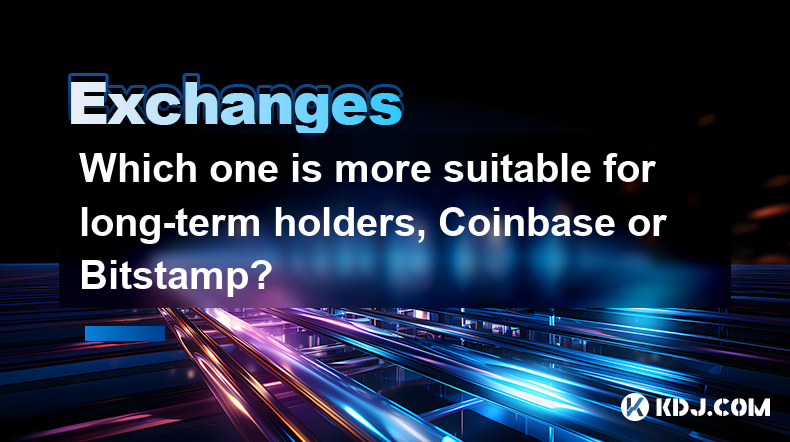
When considering which cryptocurrency exchange is more suitable for long-term holders, Coinbase and Bitstamp both offer unique features that cater to different needs. Coinbase is known for its user-friendly interface and strong security measures, while Bitstamp is praised for its lower fees and more advanced trading options. In this article, we will delve into the specifics of each platform to help you determine which one is more suitable for your long-term holding strategy.
Security and Trustworthiness
Security is a crucial factor for long-term holders, as they need to ensure their assets are safe over extended periods. Coinbase has a strong reputation for security, with features such as two-factor authentication (2FA), cold storage for the majority of user funds, and insurance coverage for digital assets. Additionally, Coinbase is regulated in multiple jurisdictions, which adds an extra layer of trust.
On the other hand, Bitstamp also prioritizes security, offering 2FA, cold storage, and insurance against theft. Bitstamp is regulated in the European Union and has a long history of operation, which contributes to its trustworthiness. However, some users might find Coinbase's security measures more comprehensive and easier to navigate.
Fees and Costs
For long-term holders, fees can significantly impact the overall returns on their investments. Coinbase charges a variety of fees, including a spread fee of about 0.50% for buying and selling cryptocurrencies, and additional fees for certain payment methods. For example, using a bank account to buy crypto might incur a fee of 1.49%, while using a debit card could cost up to 3.99%. Coinbase also offers a Pro platform with lower trading fees, starting at 0.50% and decreasing based on trading volume.
Bitstamp, on the other hand, has a more straightforward fee structure. The trading fees for cryptocurrencies range from 0.25% to 0.50%, depending on the trading volume over the past 30 days. For example, if you trade less than $20,000 in a month, you'll pay a fee of 0.50%, but if you trade more than $20 million, the fee drops to 0.25%. Bitstamp also charges deposit and withdrawal fees, which vary based on the payment method and cryptocurrency.
User Experience and Interface
The user experience and interface of an exchange can greatly affect the ease of managing long-term holdings. Coinbase is renowned for its intuitive and user-friendly interface, making it an excellent choice for beginners and those who prefer a straightforward experience. The platform offers a simple way to buy, sell, and store cryptocurrencies, with a clean design that makes navigation easy.
Bitstamp, while not as user-friendly as Coinbase, offers a more advanced interface that appeals to experienced traders. The platform provides a range of trading tools and charts, which can be beneficial for those who want to monitor their long-term investments more closely. However, the interface might be overwhelming for beginners.
Available Cryptocurrencies
The range of available cryptocurrencies is another important consideration for long-term holders. Coinbase supports a wide variety of cryptocurrencies, including popular options like Bitcoin, Ethereum, and Litecoin, as well as newer tokens like Chainlink and Uniswap. This diversity allows long-term holders to diversify their portfolios across different assets.
Bitstamp offers a more limited selection of cryptocurrencies, focusing primarily on major assets like Bitcoin, Ethereum, and Ripple. While this might be sufficient for some long-term holders, those looking to diversify into a broader range of assets might find Coinbase more suitable.
Customer Support and Community
Customer support and the surrounding community can play a significant role in the overall experience of using an exchange. Coinbase offers 24/7 customer support through various channels, including email, phone, and live chat. The platform also has an extensive help center with articles and guides to assist users. Additionally, Coinbase has a large and active community, which can be beneficial for long-term holders seeking advice and insights.
Bitstamp provides customer support via email and a help center, but it lacks the 24/7 availability and multiple channels offered by Coinbase. The community around Bitstamp is smaller compared to Coinbase, which might affect the level of support and resources available to long-term holders.
Additional Features for Long-Term Holders
Both Coinbase and Bitstamp offer additional features that can enhance the experience for long-term holders. Coinbase provides a staking service, allowing users to earn rewards on certain cryptocurrencies like Ethereum and Tezos. This can be an attractive option for long-term holders looking to generate passive income from their holdings.
Bitstamp offers a lending service, where users can lend their cryptocurrencies to other traders and earn interest. This feature can be beneficial for long-term holders who want to put their assets to work while still maintaining control over their investments.
Frequently Asked Questions
Q1: Can I transfer my cryptocurrencies from Coinbase to Bitstamp and vice versa?
Yes, you can transfer cryptocurrencies between Coinbase and Bitstamp. To do so, follow these steps:
- For transferring from Coinbase to Bitstamp:
- Log into your Coinbase account and navigate to the "Send/Receive" section.
- Select the cryptocurrency you want to transfer and enter the Bitstamp deposit address.
- Confirm the transaction and wait for it to be processed.
- For transferring from Bitstamp to Coinbase:
- Log into your Bitstamp account and go to the "Withdraw" section.
- Choose the cryptocurrency you want to transfer and enter the Coinbase deposit address.
- Confirm the transaction and wait for it to be processed.
Q2: Are there any tax implications for holding cryptocurrencies on Coinbase or Bitstamp?
Yes, there can be tax implications for holding cryptocurrencies on both Coinbase and Bitstamp. In many jurisdictions, cryptocurrencies are treated as property, and any gains or losses from trading or selling them may be subject to capital gains tax. It's important to keep detailed records of your transactions and consult with a tax professional to understand your specific tax obligations.
Q3: How can I secure my long-term holdings on Coinbase and Bitstamp?
To secure your long-term holdings on Coinbase and Bitstamp, follow these best practices:
- Enable Two-Factor Authentication (2FA): Both Coinbase and Bitstamp offer 2FA, which adds an extra layer of security to your account.
- Use Strong Passwords: Create unique and strong passwords for your accounts and change them regularly.
- Enable Withdrawal Whitelisting: Both platforms allow you to whitelist withdrawal addresses, ensuring that funds can only be sent to pre-approved addresses.
- Monitor Your Account Activity: Regularly check your account for any suspicious activity and report it immediately to the exchange's support team.
Q4: Can I use Coinbase or Bitstamp for margin trading or futures?
Coinbase does not currently offer margin trading or futures, focusing instead on spot trading and staking. Bitstamp, however, does offer margin trading, allowing users to borrow funds to increase their trading positions. If you are interested in margin trading, Bitstamp might be a better choice, but be aware of the increased risks involved.
Disclaimer:info@kdj.com
The information provided is not trading advice. kdj.com does not assume any responsibility for any investments made based on the information provided in this article. Cryptocurrencies are highly volatile and it is highly recommended that you invest with caution after thorough research!
If you believe that the content used on this website infringes your copyright, please contact us immediately (info@kdj.com) and we will delete it promptly.
- Drake, Bitcoin, and Mainstream Music: A New Era?
- 2025-07-07 12:30:12
- Meme Coins, ROI Potential, 2025 Selection: What's Hot and What's Not?
- 2025-07-07 12:30:12
- Bitcoin, Ethereum, and Dogecoin: Navigating the Crypto Landscape in a Wild Week
- 2025-07-07 12:50:11
- Meme Coin Mania: Explosive Picks and Top Buys in 2025
- 2025-07-07 12:50:11
- Bitcoin, Ethereum, and the Cryptocurrency Market: Riding the Wave of Innovation
- 2025-07-07 12:55:12
- Elon Musk, Bitcoin, and Crypto News: A 2025 Perspective
- 2025-07-07 13:10:12
Related knowledge
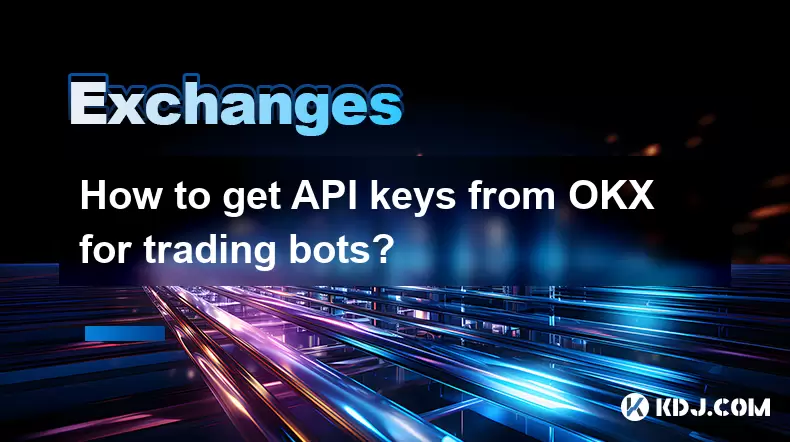
How to get API keys from OKX for trading bots?
Jul 03,2025 at 07:07am
Understanding API Keys on OKXTo interact with the OKX exchange programmatically, especially for building or running trading bots, you need to obtain an API key. An API (Application Programming Interface) key acts as a secure token that allows your bot to communicate with the exchange's servers. On OKX, these keys come with customizable permissions such ...
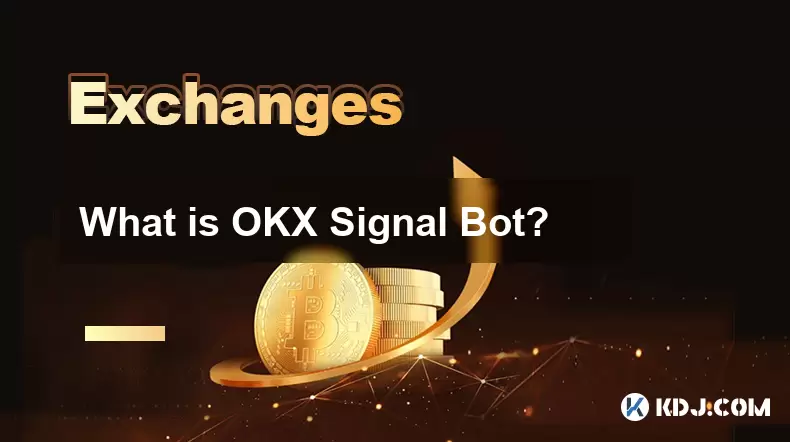
What is OKX Signal Bot?
Jul 02,2025 at 11:01pm
Understanding the Basics of OKX Signal BotThe OKX Signal Bot is a feature within the OKX ecosystem that provides users with automated trading signals and execution capabilities. Designed for both novice and experienced traders, this bot helps identify potential trading opportunities by analyzing market trends, technical indicators, and historical data. ...
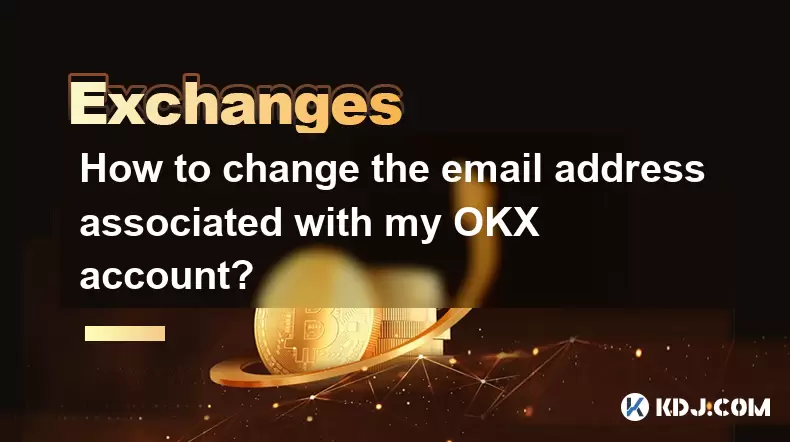
How to change the email address associated with my OKX account?
Jul 07,2025 at 08:07am
How to Change the Email Address Associated with My OKX Account?Changing the email address associated with your OKX account is a crucial process that ensures you maintain control over your digital assets and account security. Many users may find themselves needing to update their registered email due to various personal or technical reasons, such as swit...
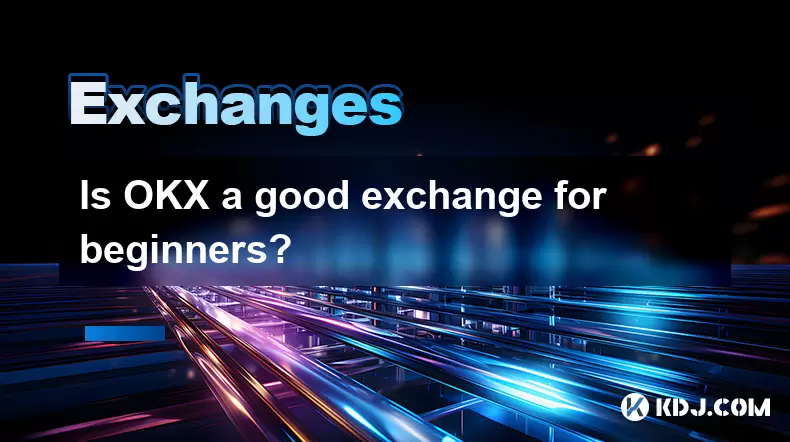
Is OKX a good exchange for beginners?
Jul 03,2025 at 05:00pm
What Is OKX and Why Is It Popular?OKX is one of the leading cryptocurrency exchanges globally, known for its robust trading infrastructure and a wide variety of digital assets available for trading. It supports over 300 cryptocurrencies, including major ones like Bitcoin (BTC), Ethereum (ETH), and Solana (SOL). The platform has gained popularity not onl...
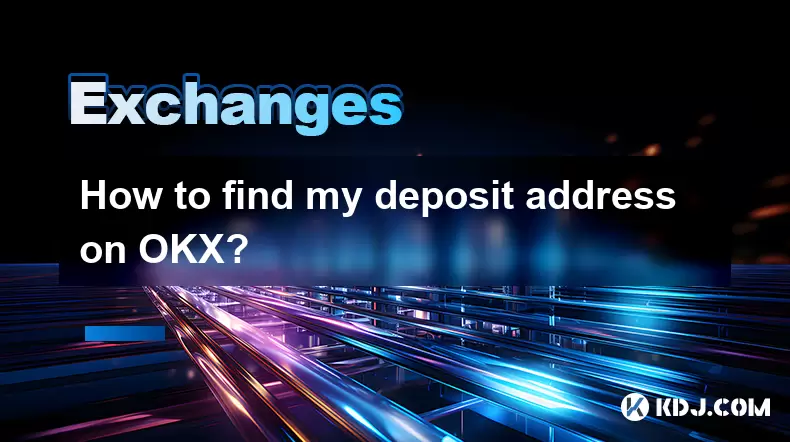
How to find my deposit address on OKX?
Jul 06,2025 at 02:28am
What is a Deposit Address on OKX?A deposit address on OKX is a unique alphanumeric identifier that allows users to receive cryptocurrencies into their OKX wallet. Each cryptocurrency has its own distinct deposit address, and using the correct one is crucial to ensure funds are received properly. If you're looking to transfer digital assets from another ...
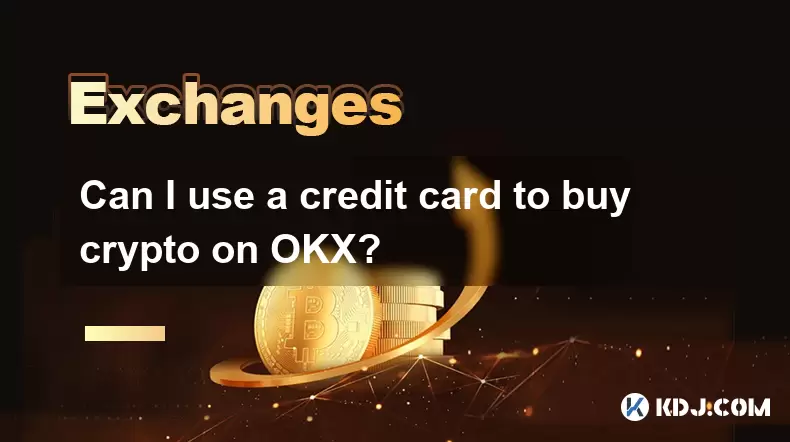
Can I use a credit card to buy crypto on OKX?
Jul 04,2025 at 04:28am
Understanding OKX and Credit Card PaymentsOKX is one of the leading cryptocurrency exchanges globally, offering a wide range of services including spot trading, derivatives, staking, and more. Users often wonder whether they can use a credit card to buy crypto on OKX, especially if they are new to the platform or looking for quick ways to enter the mark...

How to get API keys from OKX for trading bots?
Jul 03,2025 at 07:07am
Understanding API Keys on OKXTo interact with the OKX exchange programmatically, especially for building or running trading bots, you need to obtain an API key. An API (Application Programming Interface) key acts as a secure token that allows your bot to communicate with the exchange's servers. On OKX, these keys come with customizable permissions such ...

What is OKX Signal Bot?
Jul 02,2025 at 11:01pm
Understanding the Basics of OKX Signal BotThe OKX Signal Bot is a feature within the OKX ecosystem that provides users with automated trading signals and execution capabilities. Designed for both novice and experienced traders, this bot helps identify potential trading opportunities by analyzing market trends, technical indicators, and historical data. ...

How to change the email address associated with my OKX account?
Jul 07,2025 at 08:07am
How to Change the Email Address Associated with My OKX Account?Changing the email address associated with your OKX account is a crucial process that ensures you maintain control over your digital assets and account security. Many users may find themselves needing to update their registered email due to various personal or technical reasons, such as swit...

Is OKX a good exchange for beginners?
Jul 03,2025 at 05:00pm
What Is OKX and Why Is It Popular?OKX is one of the leading cryptocurrency exchanges globally, known for its robust trading infrastructure and a wide variety of digital assets available for trading. It supports over 300 cryptocurrencies, including major ones like Bitcoin (BTC), Ethereum (ETH), and Solana (SOL). The platform has gained popularity not onl...

How to find my deposit address on OKX?
Jul 06,2025 at 02:28am
What is a Deposit Address on OKX?A deposit address on OKX is a unique alphanumeric identifier that allows users to receive cryptocurrencies into their OKX wallet. Each cryptocurrency has its own distinct deposit address, and using the correct one is crucial to ensure funds are received properly. If you're looking to transfer digital assets from another ...

Can I use a credit card to buy crypto on OKX?
Jul 04,2025 at 04:28am
Understanding OKX and Credit Card PaymentsOKX is one of the leading cryptocurrency exchanges globally, offering a wide range of services including spot trading, derivatives, staking, and more. Users often wonder whether they can use a credit card to buy crypto on OKX, especially if they are new to the platform or looking for quick ways to enter the mark...
See all articles

























































































